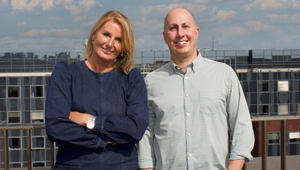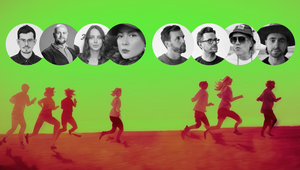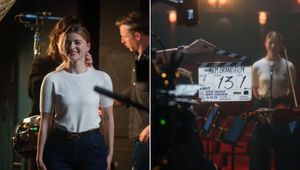
“We Have Met the Enemy and He Is Us”

I do love attending the SXSW festival every spring. It’s a shot of start-up energy, new technology and modern branding that usually leaves me inspired. This year, though, I am still reflecting on ominous warnings I heard there about what our brand-sponsored digital revolution hath wrought.
It’s no accident that Jordan Peele’s new movie, 'Us', debuted at SXSW and both his movie and this year’s talks dealt with the same unsettling topic: nightmarish forces unconsciously twisting us and making us do things we never intended. Peele brought back the old adage, “We have met the enemy and he is us.” Could the same be true for 'us' in the marketing and advertising trades?
Our devices are compromising us. Digital anthropologist Brian Solis reports that an astonishing 41% of Americans have had an accident relating to our use of smartphones: people walking across the road glued to their phones; texting while driving; injured while posing for the perfect selfie. The art of 'captology' devised by Silicon Valley is bearing ugly fruits as it lays hold of us. And it’s not just our physical safety that’s at risk. Depression, anxiety, low self-esteem, teenage plastic surgery and suicide – every index of malaise is at an all-time high.
We’ve all been 'Zucked'. Roger McNamee reports, in his new expose, 'Zucked', that Mark Zuckerberg ignored the warnings that Russian agents were flooding Facebook with fake news to swing the US elections. Looking creepy, Zuck apologised to Congress – but apologise-and-continue seems to be the MO of Facebook as the company relentlessly continues building the most powerful surveillance system ever devised. They have your credit card history, your health app information and know everywhere you were yesterday.
It’s time to reclaim our lives. The Internet wants to make us more and more predictable, media theorist Douglas Rushkoff reminds us. We are the not the users now; we are the used. Algorithms have become our new demons. They give us new powers and at same time exploit our weakness and distractibility. Our phones pour them into our lives and make us addicted. Now they can predict with 80% accuracy if we’re going to get divorced or go on a diet.
We need to safeguard our most priceless asset: creativity. Once the oddball of the corporate world, creativity is now its single most prestigious and elusive asset. No, it’s not Jackson Pollack drunk and splashing around paint. It’s simply 'original ideas that have value', as Kenneth Robinson succinctly put it. It engages the mind by challenging us. And it stops time - whereas distraction wastes time and expedites its passing. Without creativity we dwell in comfort zones, mediocrity and complacency.
So, what do we do with this new awareness of how devastating the digital revolution has become to our basic well-being and happiness? More spam is not the answer. Nor is safe and bland interruptive advertising.
If you’re in brands, you’re in the experience business. Mastercard’s CMO Raja Rajamannar is no longer interested in delivering his brand’s 'priceless' idea through interruptive advertising. Instead, he wants us to experience his brand’s idea through surprises, moments and causes. His brand focuses on eight passion points and figures out how to deliver one million activations a year that connect with these passions: everything from free upgrades to meet-and-greets in stadiums to opportunities to fund cancer research and other worthy causes. These aren’t publicity stunts but meaningful experiences that the company has learned how to deliver at massive scale. Result: its rank on BrandZ has moved from #88 to #5 globally and its current Brand Asset Valuator (BAV) index is three times that of competitors.
If you’re in the experience business, you’re in the emotion business. Awareness is not an objective because by itself it doesn’t influence behaviour – feelings do, as reports Columbia University’s gifted marketing professor Kai Wright. Emotions influence more than 75% of our decisions as behavioural scientist Gerald Zaltman and neuroscientist Antonio Damasio taught us.
If you’re in the emotion business, you’re in the story business. This year, Microsoft has unexpectedly offered a brilliant case history in this art of brand storytelling. Its CEO Satya Nadella has made it his mission to transform his company into an empathetic culture. And its 2019 campaign for the Xbox Adaptive Controller won the Super Bowl, outperforming all other spots not just for recall but also for persuasion and purchase intent.
Experience, emotion and storytelling put you in the culture business. Quick: when you think 'culture', do you visualise mostly museums and theatres? OK. But did you know that young adults consider culture to also be new restaurants, food fairs, street art and music festivals? Look at what Starbucks is up to with its new flagship roasteries. Willy Wonka bean pipes. Giant mermaid sculptures. Mixology stations. Scoop bars. They are making a credible bid to be a cultural experience. The opportunity for every brand is to place itself in such cultural landscapes.
Brands need to start giving us more respite from distraction and noise, not add to it. And if they want to interrupt our daily flow, it better be with something amazing. Otherwise, we have met the enemy and he is us.
Richard Wise is as brand anthropologist at Geometry















